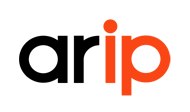Internal Controls
The Company recognizes the importance of adequate and appropriate internal controls that aim to make the Company’s business operation efficient and effective. The Company has established an effective internal control system covering all aspects of its operation including accounting & finance, operation, human resource management, general administration, and information system management. It also ensures that accounting system and financial reports are accurate and reliable in compliance with regulations under the Company’s operation. The Company’s internal control system could be summarized 5 aspects as follows:
1. Control Environment
– The Company has an organizational structure and chain of command that are explicit and appropriate. Job descriptions are assigned in writing so that all employees are aware of and realize their roles, authority and responsibility.
– The Company has established policies and operational procedures for each written workflow.
– The Company recognizes the importance of honesty and business ethics. There are written policies and procedures for the Company’s business ethics, code of conducts of the management and employees.
– The Company has established a rule to prevent executives and employees from behaving in a manner that may cause conflict of interest with the business. It has also set a disciplinary action for violations of such rule as written in the working regulations. In addition, the Company has launched a “Whistleblower” campaign to attain complaints or leads about fraudulent behaviors. This help making the operation carried out by employees and executives more transparent, honest, fair and accountable.
2. Risk Evaluation
The Company has conducted both internal and external risks assessments that may have an impact on the business. The Company also analyzes and sets measures to mitigate risks, as well as communicates to relevant employees.
3. Control Activities
The Company has set policies and operational procedures as a guideline for business operation mainly to achieve goals as defined by the management. The control activities will suggest possible risks that may arise from normal operation. This is for employees to take precautions measures, which should lead to successful operation. Samples of control activities are listed below:
– Finance and accounting: the Company has an internal control system relating to debt collection, safekeeping of cash, receive-pay, bank deposits and I.O.U. to ensure compliance with the Company’s regulations. Accounting entries are recorded accurately and consistently.
– Procurement of goods and services: the Company has established procurement rules and procedures to be used as a guideline for procurement. The guideline clearly stipulates duties and responsibilities procurement procedures, including among others, approval authority, determination of requirements and acceptance of goods and services.
– The Company has determined key performance indicators (KPI) for employees of the whole organization.
– The Company has determined scope of authorities and responsibilities as well as level of financial authorization in writing.
– The Company has devised Business Continuity Plan (BCP) to be readily prepared should the ICT system crashes.
4. Information and Communication
The Company has an information system to support business operations, financial reporting, policy and regulation compliances. The Company has sufficiently and adequately prepared data and significant information to support decision-making. Moreover, the information obtained from outside of the organization is communicated to executives and users within the organization in the format that allows the recipients to perform their duties and responsibilities effectively.
5. Monitoring and Evaluation
The Company has established an internal audit unit to inspect and assess results of internal control. Its main duties are to oversee and monitor to ensure that the Company’s key operations and financial transactions are carried out in accordance with the Company’s regulations. The internal audit unit will devise annual audit plan and fully perform the audit in accordance with the plan. To ensure that the internal audit unit can independently and freely perform its duty, the Board of Directors has stipulated that the internal audit unit shall report directly to the audit committee. The Audit Committee assigned to internal audit to monitor and report to the Audit Committee in the next meeting.
 www.aripplc.com
www.aripplc.com